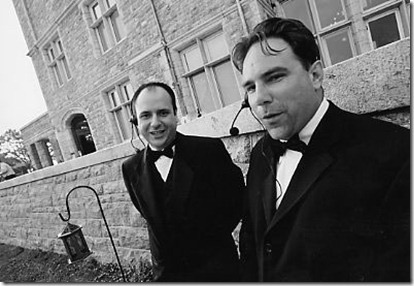A vice president of marketing tells me that he is “freaking out” over some of the choices in a deck design for a new product launch.
The problem:
Words matter. Particularly when you occupy a leadership position.
If a CEO is “freaking out” over deck design – which essentially amounts to the choice of images, animations, and overall color scheme – how will this CEO react when an actual emergency arises?
If deck design causes him to freak out, just imagine how he might handle an honest-to-goodness problem. Or a situation that cannot be corrected so easily.
Also, how does “freaking out” over a deck design help his people improve their work in any productive way?
Perhaps this vice president was speaking hyperbolically. Maybe he was far less frantic than his words conveyed. Admittedly, this may have all been bluster, absent any real emotion.
But words matter. Particularly when you occupy a leadership position.
When I managed McDonald’s restaurants, I was keenly aware that my language, attitude, and general disposition impacted my employees tremendously. If I was positive and confident about my day, my employees would often adopt a similar disposition. If I talked about how much fun I was having, regardless of the conditions at that moment, my employees were far more likely to feel the same. When I arrived at the restaurant, almost always before sunrise, I tried like hell to have a skip in my step, even if I wasn’t feeling particularly upbeat that day.
Why?
I was managing the restaurant. Setting the tone. It behooved me to project an image of positivity and confidence. It almost always made the day better for me and the people around me.
The same holds true for a teacher. A positive attitude is infectious. A desire to climb proverbial mountains and achieve new heights is contagious. A willingness to make mistakes in front of my students encourages them to do the same. Kindness breeds kindness.
I start every morning by talking to my students about how I spent the previous day, focusing on the things that I want them to see as critical for a good, productive life.
I tell them about what I read and how much time I spent reading. I describe the ways that I exercised. I list any healthy foods that I enjoyed. I talk about the chores I did, the meals I cooked, and the ways I helped my family. I tell them about the writing I did. I teach them anything new that I learned.
If I avoided watching television, I tell them so. If I went someplace interesting, I tell them about it. If I tried something new, I tell that story. If I spent any time outdoors, I tell them how.
And I ask them to respond as well.
Who read something exciting last night? Hilarious? Surprising?
Who ate something super healthy for dinner last night?
Who helped with a meal? Took care of a pet? Made their bed this morning?
Did anyone write?
Play a sport?
Visit with a friend?
Solve a challenging problem?
Go to bed at a reasonable hour?
It takes ten minutes, but I think it’s ten of the most important minutes of the day. It sets a tone. Projects positivity. Models a productive, healthy, happy life. Demonstrates vulnerability. Opens my heart and mind so that they can do the same.
Words matter. Particularly when you occupy a leadership position.
My students will never see me freaking out. They’ll never hear me talk about freaking out.
I might talk about a problem I have yet to solve. I might describe a challenge that I’m facing. I might even talk about a setback I’ve suffered or a recent act of stupidity.
Definitely the acts of stupidity. Those are always the best stories.
But I’m careful with my language. Cautious about the words I use. Thoughtful about how I can speak of these less-than-ideal moments in my life as opportunities for growth and insight
Why?
Words matter. Particularly when you occupy a leadership position.
If you’re freaking out about a deck design, that’s problematic given the nature of business and the serious, sometimes immutable problems that you will face.
Freaking out over the small stuff is always problematic.
Speaking about it in those terms, particularly when you are in a leadership position, is even worse.










